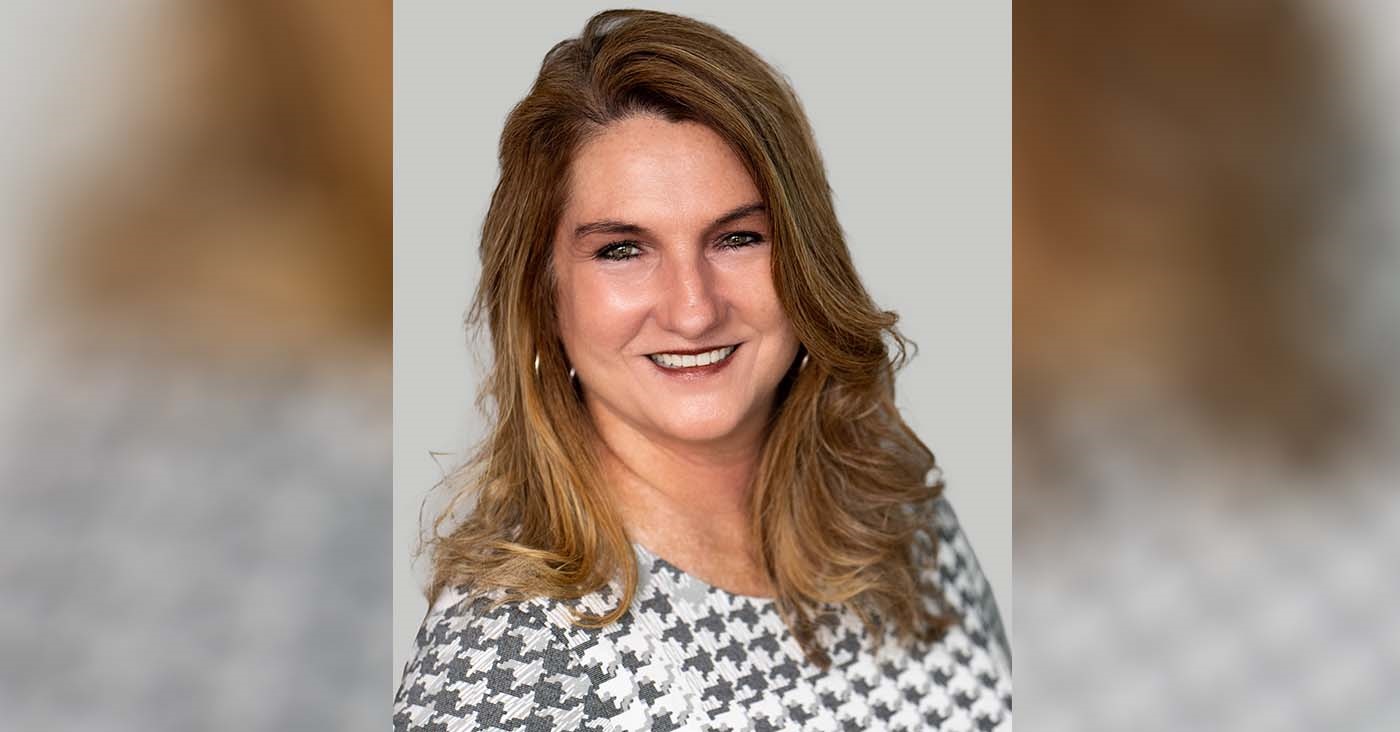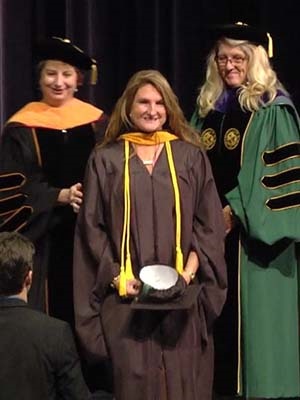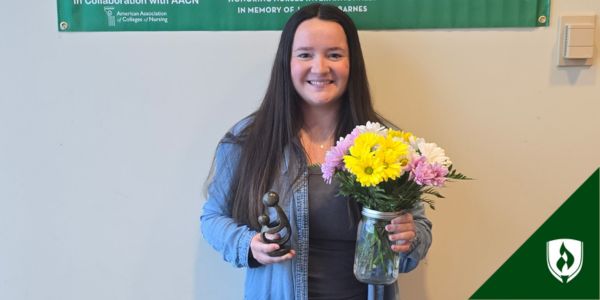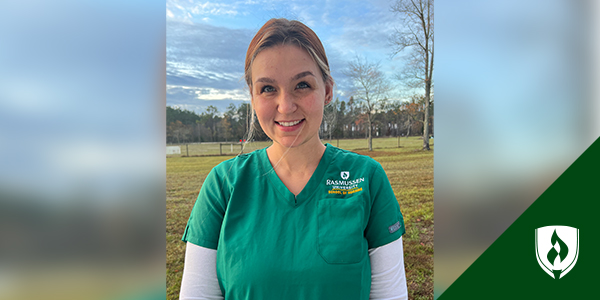DNP Student Impacts Countless Patients Through Her Work in Quality Improvement
By Kirsten Slyter on 11/30/2022

As a kid, Kimberly Mulquin-Shumway watched two things: medical shows and detective shows. When she reflects on her career, she can clearly see how both interests have led her to her work today in quality improvement. She likes to think of herself as a detective in the medical field. “You dig, dig and dig ‘til you find the root cause.” And that’s exactly what she loves to do.
Mulquin-Shumway entered the medical field as a registered nurse with her Bachelor of Science in Nursing degree and began working in labor and delivery in Chicago. She loved caring for patients directly but had an inkling that she could have an impact on even more patients in a different position.
"It’s why I am a nurse. I want to do good for everybody and take care of everybody."
After moving to OB/GYN ambulatory care, she met a pharmaceutical representative who mentioned how a registered nurse with a Master of Business Administration (MBA) would be “like gold” to the industry. This statement sparked her interest in the business side of healthcare. Mulquin-Shumway could see herself thriving in the interaction of clinical healthcare and business. So, she returned to school to earn an MBA with a certificate in human resources.
“It’s why I am a nurse. I want to do good for everybody and take care of everybody,” she says.
Beyond the bedside
Earning her MBA helped Mulquin-Shumway begin to marry the clinical and operations sides of healthcare and launched her into a career in quality improvement—a discipline that, at the time, was just finding its feet.
The goal of quality improvement (QI) in healthcare is to improve patient care and safety by evaluating and creating standardized processes that help patients get on the road to recovery as soon as possible.
This includes efforts like the ones Mulquin-Shumway worked on in her first QI job at Rush University Medical Center. There, she created clinical pathways for patients presenting to the emergency department with chest pain, recovering from community-acquired pneumonia or experiencing stroke symptoms. She helped implement a step-by-step protocol for these and other conditions. She also partnered with the IT department to capture data electronically, before electronic health records were a thing, to show the effect of the protocols the team created.
The longer Mulquin-Shumway has worked in QI, the more she appreciates the difference it can make. “I love it because as a staff nurse, I can only impact the patients I take care of. But if I make a change in a process, I can potentially impact hundreds of thousands of patients coming through with that same condition.”
Mulquin-Shumway can see a patient’s personal story through their medical chart. Though it may look like gibberish to a family member or a to-do list to their nurse, she can read brief nursing notes, orders and test results and see the bigger picture. She looks to see what support the patient is receiving and what resources the patient care team might have needed.
“Reading a chart tugs at my heartstrings. I can see what’s really going on and consider what might have been done differently,” she says.
One thing she attributes to her success in her career is that when changes need to be made, she goes to the staff involved to get to the root cause. “I want to educate the people that do the work for the good of society,” she says.
Even higher education
This passion for education led Mulquin-Shumway to pursue her Master of Science in Nursing (MSN) with a focus on nursing education at Rasmussen University. She had ambitions to earn her Doctor of Nursing Practice (DNP); however, at the time, the DNP programs at many other institutions required students to be nurse practitioners.

As she continued to work and earn her MSN, she learned Rasmussen University was developing its DNP program which would not require her to be a nurse practitioner.1 As she was nearly done with her MSN, she waited for the DNP program to be approved in Florida, her state.
A bachelor’s degree, two master’s degrees, multiple certifications and a doctoral degree may sound like a lot of education, but Mulquin-Shumway sees it as time well spent on herself and her career.
She’s always loved school. As a kid, she would cry when she was sick and her mom forced her to stay home from school. “I’ve always had the ambition to be the best at something,” she says.
When the DNP program was approved, Mulquin-Shumway couldn’t wait to start. Even though she was a part of only the second cohort in the program, she was excited to be a part of something new. “I thrive on upstarts. I like being the guinea pig because there’s no idea that’s crazy,” she says. In the program, she’s been a part of trialing new software systems and providing feedback on options for practicums.
One of her favorite things about the Rasmussen University nursing programs is the competency-based education (CBE) learning option that allows students to use their life experiences and knowledge to progress through the course by passing specific competencies at their own pace. “The onus is on me for all my deadlines at the end of the system,” says Mulquin-Shumway.
She believes that this makes the program doable for working professionals like herself, who continue to work full time, excel in her program and spend valuable time with her family, including young grandchildren.
Advice for others
Mulquin-Shumway is projected to graduate with her DNP in 2023. She hopes to one day work in the C-suite of a healthcare organization. “Now that I see how patient care and operations are enmeshed, I want to have additional impact,” she says.
She regularly encourages others who want to pursue career advancement to consider the barriers in their way and create a step-by-step plan to get where they want to go. She encourages them not to shy away from any potential education it takes to achieve their goals. “I don’t think you can ever know too much.”
1Applicants to this program must hold a conferred master’s degree in nursing from an accredited nursing program or a baccalaureate degree in nursing from an accredited program and a master’s degree in a related field with a cumulative 3.0 GPA or higher and possess an active, unencumbered RN license from the state where the clinical hours will be completed. Please speak with an admissions advisor regarding additional entrance requirements.





